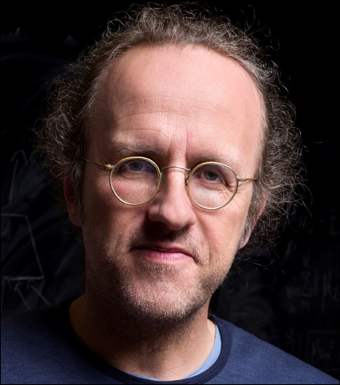| ACM Awards For Contributions in AI and ML |
| Written by Sue Gee |
| Friday, 12 May 2023 |
|
Bernhard Schölkopf and Stuart Russell are the joint recipients of the 2022 ACM-AAAI Allen Newell Award. They share the $10,000 prize, co-funded by the Association for the Advancement of Artificial Intelligence. One of the ACM's Technical Awards, whose recipients are selected by their peers, the ACM - AAAI Allen Newell Award is for career contributions that have breadth within computer science, or that bridge computer science and other disciplines. Presented annually since 1994, it is named in honor of Allen Newell one of the founding pioneers of the field of Artificial Intelligence and from 1979-80 the inaugural President of the American Association for Artificial Intelligence, the former name of the AAAI. The citation in respect of Stuart J. Russell, who is Professor of Computer Science at UC Berkeley reads: For fundamental contributions to artificial intelligence, especially in bounded rationality, probabilistic reasoning, and ethical AI Russell contributions to Artificial Intelligence, span a wide range of areas such as logical and probabilistic reasoning, knowledge representation, machine learning, reinforcement learning, and the ethics of AI. Early in his career, he defined and studied the concept of bounded optimality, a formal and practical replacement for perfect rationality. This work was recognized by the 1995 IJCAI Computers and Thought Award, one of the most prestigious awards in AI. Russell is perhaps best know for his work on the unification of logic and probability theory which led to the formal language called Bayesian logic, one of the leading formulations of probabilistic programming. He is also known as the co-author with Peter Norvig of the textbook Artificial Intelligence: A Modern Approach which presents a unifying perspective connecting AI to fields such as statistics, operations research, and economics. Russell is one of the most influential figures worldwide in addressing important ethical issues in AI, working to promote beneficial uses of AI and to prevent harm with a wide range of measures, from technical solutions to advocacy work, and to education and dissemination initiatives. He is a leader of the international campaign to ban lethal autonomous weapons systems, see Autonomous Robot Weaponry - The Debate for more about this. He also created the Center for Human-Compatible AI at the University of California at Berkeley in 2016 and published the book Human Compatible: AI and the Problem of Control in 2019 which lays out a new conceptual foundation for designing AI systems that are guaranteed to be beneficial to their users. In March this year Russell with Yoshua Bengio, Elon Musk and Steve Wozniak signed an open letter calling on AI labs to pause work on training AI systems more powerful than GPT-4. This petition has now collected over 30,000 signatures.The citation in respect of Bernhard Schölkopf, founder of of the Max Planck Institute for Intelligent Systems and ETH Zurich, reads: In recognition of his widely used research in machine learning, advancing both mathematical foundations and a broad range of applications in science and industry Schölkopf a world leader in machine learning, and has made seminal contributions to kernel methods, learning theory, and causality. He Schölkopf helped develop, advance, and generalize the theory of support vector machines, which has had a profound impact on machine learning. His contributions to kernel PCA and kernel embeddings have advanced fundamental statistical methodology in dimensionality reduction, semi-supervised learning, and hypothesis testing. His pioneering work in causal machine learning has laid the foundation for a novel understanding of learning causal relationships from data, with implications for all areas of science. Besides his theoretical and algorithmic contributions, Schölkopf and his team have advanced numerous areas of applied machine learning, including applications to astronomy, biology, computer vision, robotics, neuroscience, and cognitive science. Professor Schölkopf has also played a critical leadership role in European AI and machine learning community. He founded the Max Planck Institute for Intelligent Systems, and the European Laboratory for Learning and Intelligent Systems (ELLIS), two power-houses of ML research and co-founded the Machine Learning Summer Schools, which have educated many generations of ML researchers. In 2019 his " fundamental contributions to machine learning led to his being one of three recipients of ICT Frontiers of Knowledge Award, see BBVA Frontiers Award 2019 Recognizes Advances In Machine Learning.
Levesque and Vardi Receive Newell Award Award Recognizes DCTCP Pioneer Ethernet Inventor Bob Metcalfe Receives 2022 Turing Award Chip Designer Wins 2022 ACM Breakthrough in Computing Award BBVA Frontiers Award 2019 Recognizes Advances In Machine Learning
To be informed about new articles on I Programmer, sign up for our weekly newsletter, subscribe to the RSS feed and follow us on Twitter, Facebook or Linkedin.
Comments
or email your comment to: comments@i-programmer.info
|
| Last Updated ( Friday, 12 May 2023 ) |





